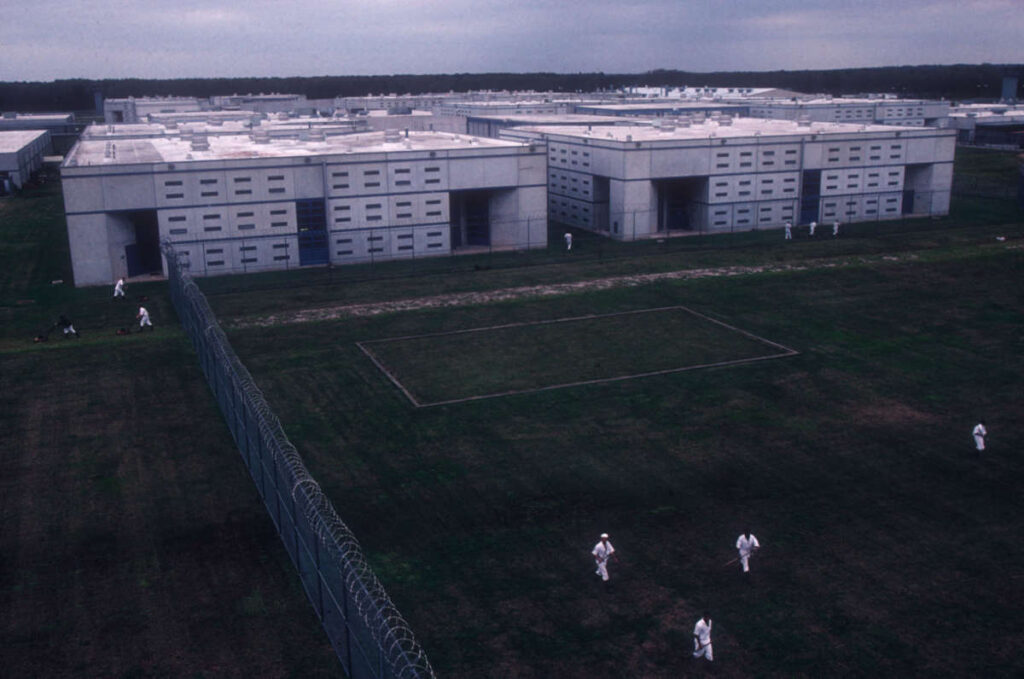At Sustainable Action Now, we’re committed to exposing the hidden connections between environmental, social, and economic systems that shape our collective future. One of the least discussed yet most urgent crises unfolding across the United States today lies at the intersection of rural healthcare and mass incarceration.
According to recent analysis, almost half of all incarcerated people in America are housed in rural jails and prisons, where access to quality healthcare is already limited—and that access is now under even greater threat. With the Trump administration’s proposed “One Big Beautiful Bill Act,” the potential closure of dozens of rural hospitals could leave not only rural communities but also incarcerated individuals facing catastrophic healthcare shortages.
This is not just a rural problem—it’s a national one.
The Hidden Geography of Incarceration
Over the past several decades, America’s prison population has grown rapidly, but the geography of incarceration has shifted quietly. As urban jails reached capacity, rural counties became the new frontier for incarceration, with prisons built as economic stopgaps for struggling small towns. The result? A massive portion of the incarcerated population—nearly half—is now located far from urban centers and major hospitals.
Many of these rural detention centers and state prisons rely heavily on nearby community hospitals for emergency medical care. When those hospitals close, there is no viable backup system in place. Transporting incarcerated individuals to distant hospitals becomes costly, dangerous, and inefficient, while smaller correctional medical units are ill-equipped to handle serious conditions like heart attacks, mental health crises, or infectious disease outbreaks.
The “One Big Beautiful Bill Act” and Its Consequences
The Trump administration’s One Big Beautiful Bill Act has been touted as a measure to “streamline” healthcare costs and consolidate resources. But the real-world impact paints a far darker picture. Under this policy, many rural hospitals—already struggling to remain open amid staffing shortages, dwindling reimbursements, and high operating costs—would be forced to close.
For rural residents, this means longer travel times, increased healthcare costs, and reduced emergency care access. For those incarcerated in rural prisons and jails, the consequences are even more dire. Incarcerated individuals are already at higher risk for chronic illnesses, mental health disorders, and untreated injuries. When local hospitals close, these populations effectively lose their only lifeline to critical medical care.
Without nearby hospitals, medical neglect becomes systemic, not situational. Lives that are already marginalized—both by geography and incarceration—are pushed further into danger.
The Broader Impact on Communities
It’s easy to view this issue solely through the lens of incarceration, but the closure of rural hospitals has ripple effects that devastate entire communities. When a rural hospital shuts down, local jobs vanish, emergency response times skyrocket, and entire regions lose access to maternity wards, trauma care, and specialized treatment.
These closures don’t just harm incarcerated people—they weaken the entire social fabric of rural America. Families lose care options. Elderly residents struggle to get prescriptions filled. Children lose access to pediatric care. For correctional facilities, the burden of providing adequate healthcare shifts inward, often resulting in overextended medical staff, unsafe conditions, and preventable deaths behind bars.
At the same time, these systemic failures reveal a deeper ethical and logistical paradox: the U.S. continues to expand incarceration in areas where the most basic human needs—like access to healthcare—are collapsing.
The Need for Systemic Reform and Oversight
To create a sustainable, humane future, it’s essential to recognize that healthcare access is a cornerstone of justice. Sustainability is not only about protecting the environment—it’s about building systems that protect people, especially the most vulnerable.
Policymakers must rethink how funding is allocated to rural communities and correctional systems alike. This includes:
- Investing in rural healthcare infrastructure, ensuring that hospitals remain open and fully staffed.
- Reducing incarceration rates through meaningful justice reform, especially in low-population regions.
- Expanding telemedicine and mobile health programs within correctional facilities to bridge immediate gaps in care.
- Holding policymakers accountable for legislation that undermines public health for the sake of cost-cutting.
These steps are not optional—they are essential if we are to prevent the deepening divide between those who have access to medical care and those who are left behind by policy.
Taking Action
At Sustainable Action Now, we are raising awareness about the human and economic consequences of prison expansion and rural hospital closures. The connection between incarceration and healthcare is too important to ignore. When hospitals close, it’s not just communities that suffer—it’s entire populations living behind bars who are stripped of their most basic rights to medical care and dignity.
To learn more about the growing impact of privatized prisons, the corporate interests driving incarceration, and how healthcare inequities intersect with justice reform, visit our Private Prisons Initiative. There, you’ll find resources, data, and actionable ways to support transparency, accountability, and humane reform in America’s prison system.
A Call for Sustainable Justice
Sustainability means creating systems that support all life—not just the privileged few. It means recognizing that justice and healthcare are interconnected, and that true progress requires addressing inequities that cut across social, racial, and economic lines.
The crisis facing rural prisons and hospitals is not inevitable—it’s the result of choices. But we have the power to make different choices. By pushing for ethical governance, responsible funding, and compassionate reform, we can ensure that no one—free or incarcerated—is left without access to the care they deserve.
The fight for sustainability is also a fight for justice. Let’s not allow political convenience or corporate profit to dictate who lives and who suffers.
For more information, and to take a stand against the privatization of prisons and the collapse of rural healthcare, visit the Sustainable Action Now Private Prisons Initiative. Together, we can help build a future where every life, every community, and every system is treated with dignity, fairness, and care.


